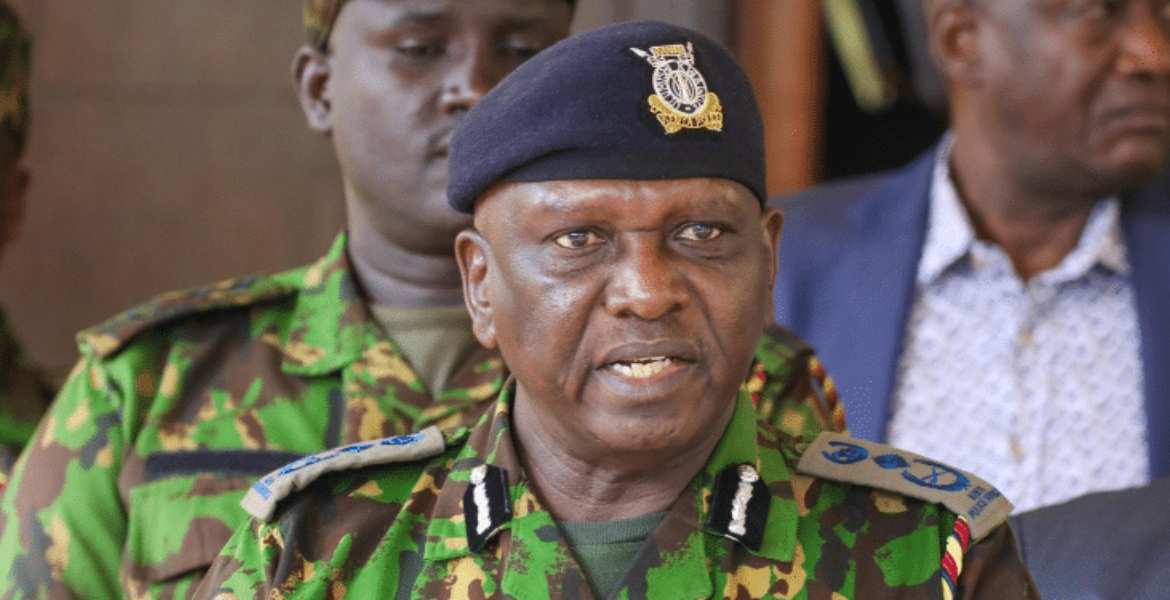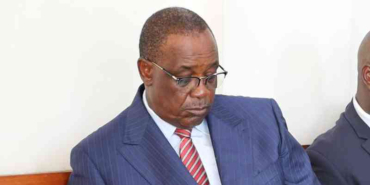Sh60 Billion Police Payroll Sparks Constitutional Clash Between IG and Commission

A contentious dispute has erupted in Kenya, pitting the Inspector-General of Police, Douglas Kanja, against the National Police Service Commission (NPSC) over control of the National Police Service’s (NPS) £470 million annual payroll.
The power struggle, triggered by a parliamentary directive, raises fundamental constitutional questions about the balance of power between operational command and human resource oversight within the police force. At the centre of the conflict is the National Assembly’s Public Accounts Committee (PAC) order that Kanja relinquish control of the payroll to the NPSC. The directive followed the scrutiny of a report by Auditor-General Nancy Gathungu, which highlighted opacity within the payroll system and questioned the effectiveness of the NPSC’s 2019–2022 strategic plan.
The report noted the NPSC’s lack of access to the payroll, raising concerns about the accuracy of disclosures by senior police officials. Kanja, however, has resisted the directive, asserting that managing the payroll is an operational function inherent to his role as Inspector-General. He argues that Article 245 of the Constitution grants him independent command over the NPS, shielding him from external directives on operational matters.
"The Constitution is clear that no one should give directions to the IG on matters of operations. The payroll being an operation tool, such directives cannot be honoured," Kanja said in a recent interview, reinforcing his position.
Conversely, the NPSC views payroll administration as integral to its constitutional mandate, which includes overseeing recruitment, promotions, and disciplinary actions within the police service. The commission maintains that access to payroll data is essential for effective human resource management and accountability. Despite attempts to contact the leadership of the NPSC, including CEO Peter Leley and spokesperson Gerald Gichura, for comment, the commission has remained conspicuously silent amid the escalating row.
This is not the first time the commission has clashed with the police leadership. Kanja’s predecessor, Japhet Koome, faced similar tensions when he unilaterally announced promotions without consulting the NPSC. Although the commission rejected the promotions, the changes were implemented, with officers receiving salary increases based on their new ranks. A former NPSC commissioner, speaking anonymously, highlighted the commission’s inability to access vital personnel records.
“You cannot have control of the people you have employed, disciplined and even promoted without access to these vital records,” the former official said.
Legal opinions are divided on the issue. Lawyer Charles Kanjama argues that the Inspector-General is the appropriate custodian of the payroll, drawing parallels with other independent commissions such as the Judicial Service Commission and the Parliamentary Service Commission, which manage their own payrolls in line with their operational autonomy.
Critics, however, contend that the police payroll is not merely an operational tool but a cornerstone of human resource management. They argue that denying the NPSC access undermines its ability to fulfil its constitutional mandate and perpetuates a culture of opacity and impunity within the force. A taskforce on police reform, chaired by retired Chief Justice David Maraga, recently submitted a report to President William Ruto warning of the continued usurpation of the commission’s powers by senior police officers.
“Regrettably, however, the NPSC leadership has acquiesced to the continued usurpation of its functions by the NPS leadership, thereby exacerbating the vices that it was established to redress,” the report said.
President Ruto’s administration has taken steps to bolster police autonomy, including an executive order issued in 2022 that granted the service financial independence. Under the new framework, the Inspector-General serves as the accounting officer for the National Police Service, a role previously held by the Office of the President. This move, intended to enhance operational efficiency and reduce political interference, has inadvertently intensified the power struggle between the police and the commission.








Add new comment